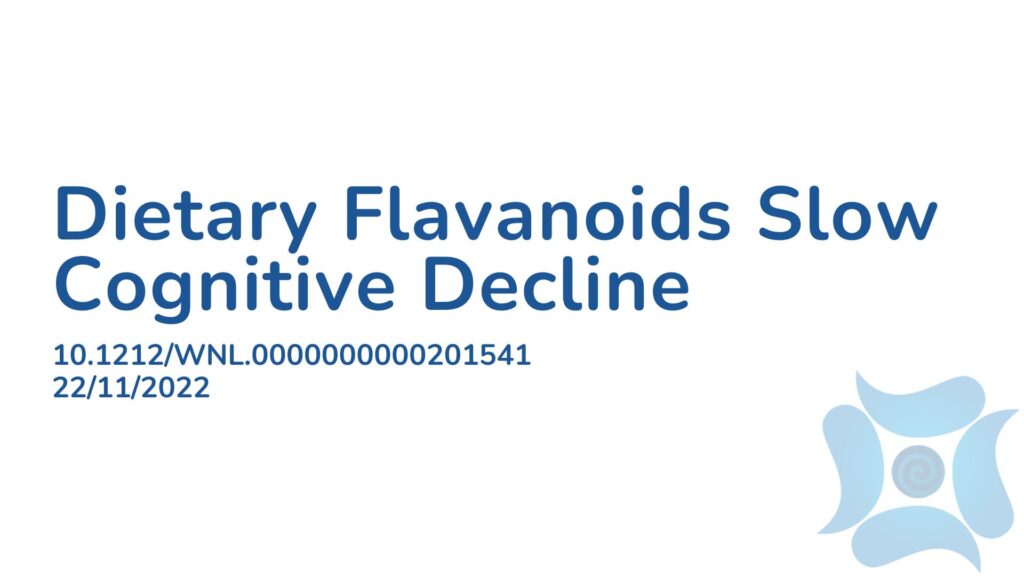Summary:
The purpose of this paper was to assess the role of dietary flavanoids such as quercetin and myricetin in cognitive performance. Cognitive performance was measured as recall, memory, spatial perception and visual perception. The paper is a prospective cohort study that followed 961 participants for 6.9 years, assessing their diet via a food questionnaire and monitoring their cognition. The results showed that higher dietary intake of flavonols were associated with a slower rate of cognitive decline, even after adjusting for age, sex and lifestyle choices such as smoking. These results are critically important to consider as they imply that age-related cognitive decline may be better supported with a nutritious, flavonoid rich diet.
Abstract:
Background and Objective: Previous research has examined the association between cognition and flavonoids: bioactives found in foods, known to possess anti-inflammatory and antioxidant properties. We extend this research by investigating associations of dietary intakes of total flavonols and constituents (kaempferol, quercetin, myricetin, isorhamnetin) on the change in cognitive performance in global cognition, episodic memory, semantic memory, visuospatial ability, perceptual speed, and working memory. Methods: The study was conducted using 961 participants (60-100 years) of the Rush Memory and Aging Project, a prospective cohort of community-dwelling Chicagoans who were followed for an average of 6.9 years. Diet was assessed using a validated semi-quantitative food frequency questionnaire. Cognitive performance was assessed annually with a battery of 19 standardized tests. Flavonol intake was analyzed as a continuous variable using linear mixed effects models. Cognitive domain scores were regressed on baseline calorie-adjusted flavonol variables. Results: Higher dietary intake of total flavonols and flavonol constituents were associated with a slower rate of decline in global cognition and multiple cognitive domains. In continuous models adjusted for age, sex, education, APOE-ɛ4, late life cognitive activity, physical activity, and smoking, total flavonoid intake was associated with slower decline in global cognition β estimate=0.004 (95% CI=0.001, 0.006), episodic memory β=0.004 (95% CI: 0.002, 0.006), semantic memory β=0.003 (95% CI: 0.001, 0.007), perceptual speed β=0.003 (95% CI: 0.001, 0.004), and working memory β=0.003 (95% CI: 0.001, 0.005) and marginally associated with visuospatial ability β=0.001 (95% CI: -0.001, 0.003). Analyses of individual flavonol constituents demonstrated that intakes of kaempferol and quercetin were associated with slower global cognitive decline [β=0.01 (95% CI: 0.006, 0.02) and β=0.004 (95% CI: 0.0005, 0.007)], respectively. Myricetin and isorhamnetin were not associated with global cognition. Conclusion: Results suggest dietary intakes of total flavonols and several flavonol constituents may be associated with slower decline in global cognition and multiple cognitive abilities with older age.
Article Publication Date: 22/11/2022
DOI: 10.1212/WNL.0000000000201541




